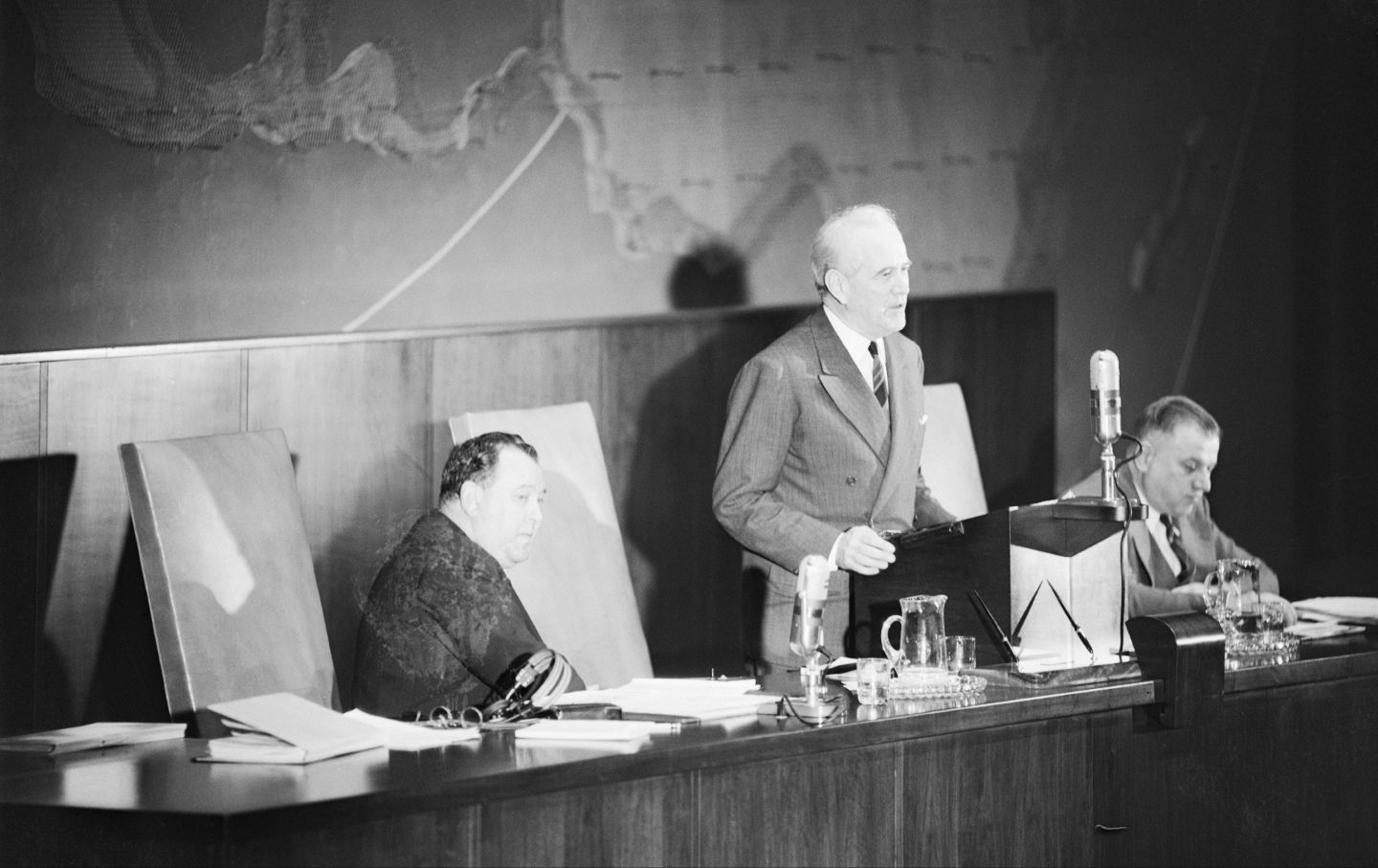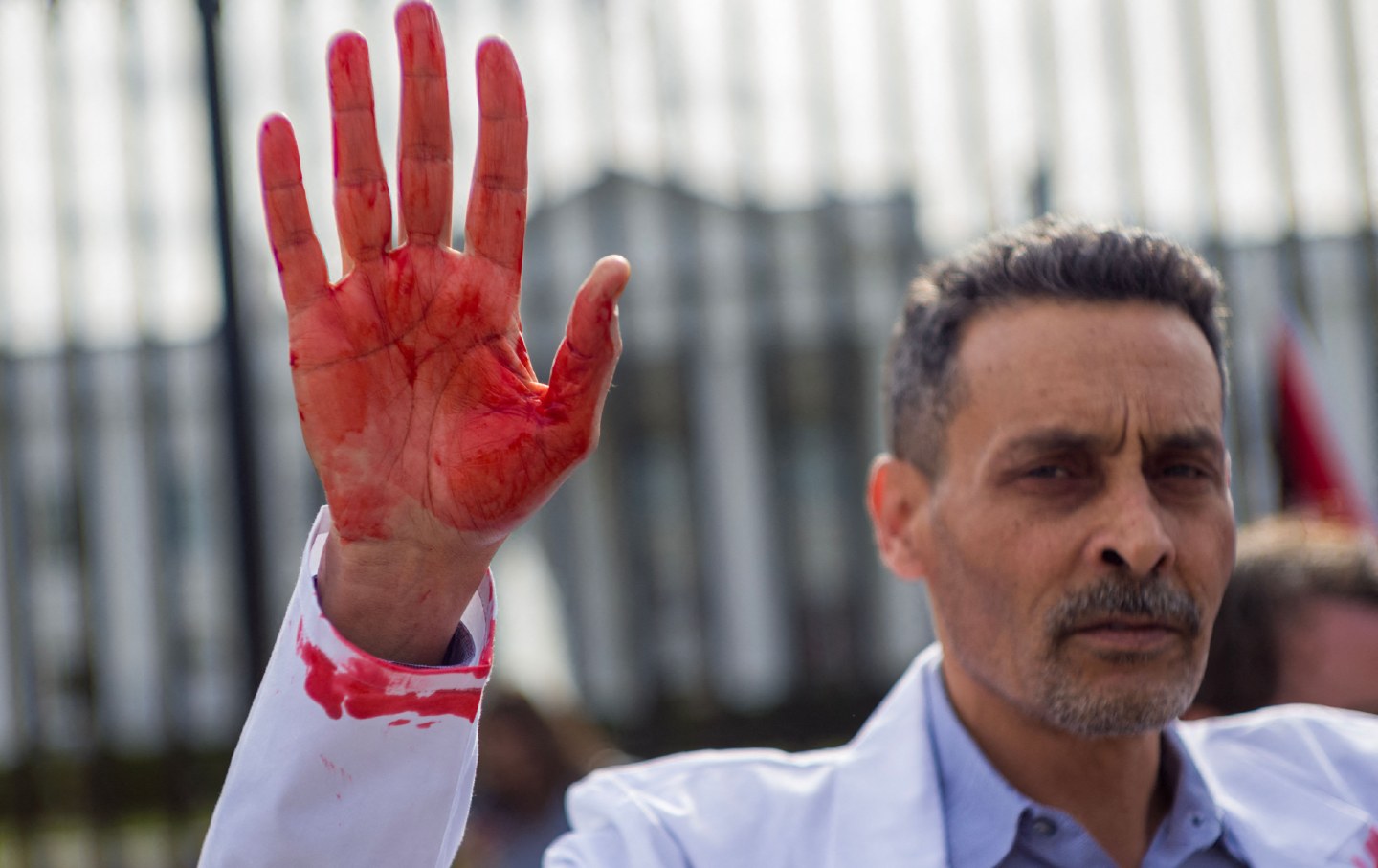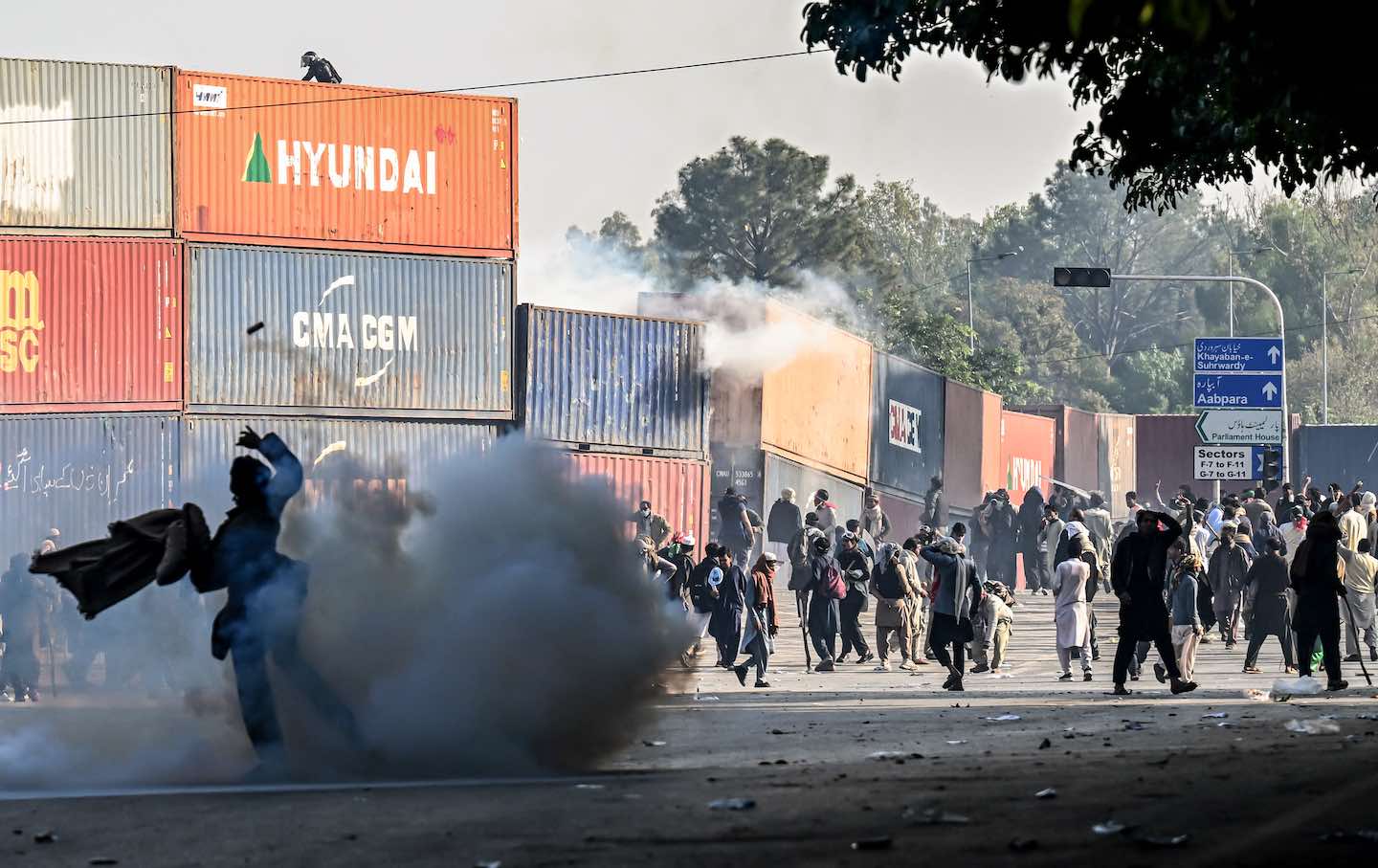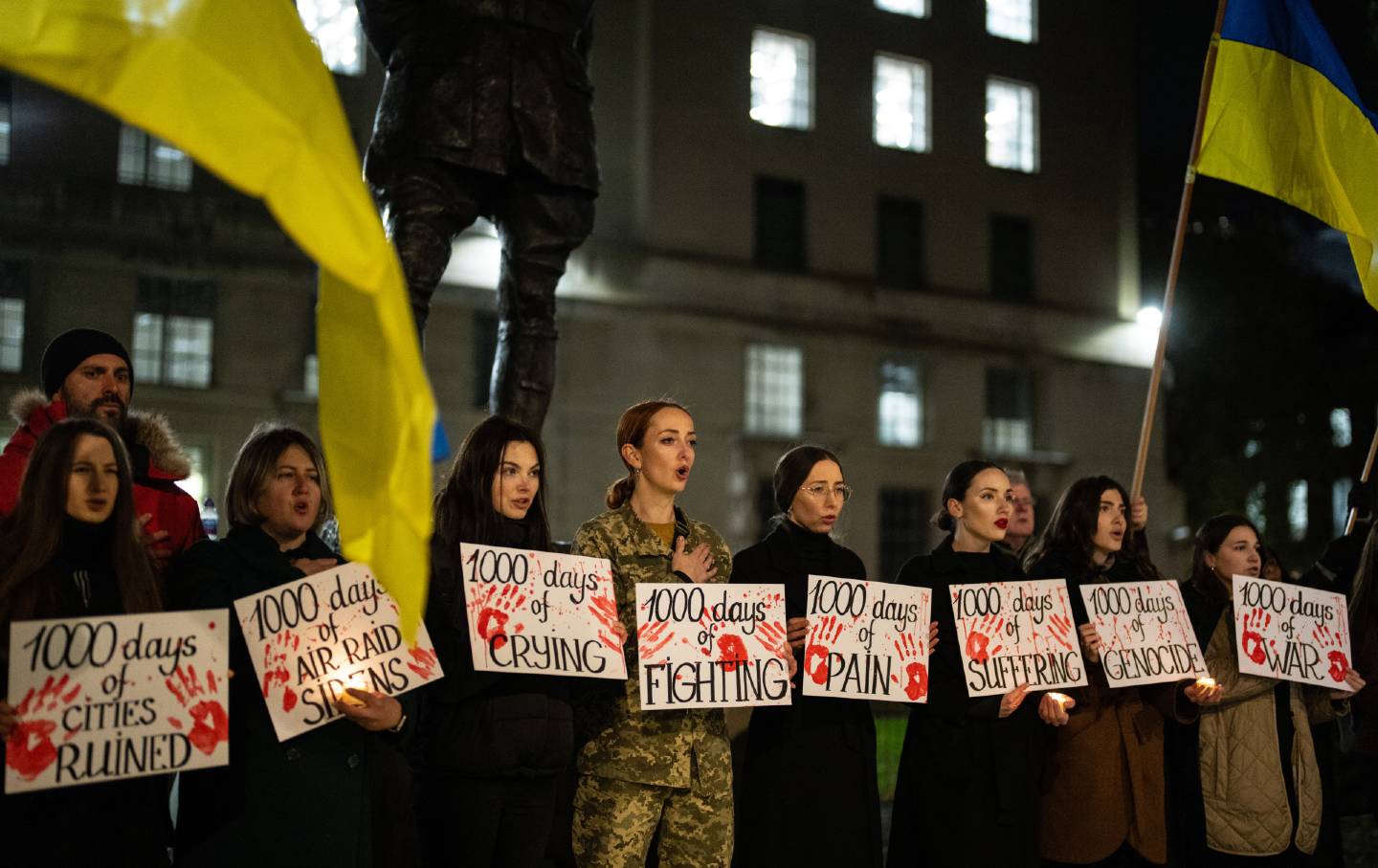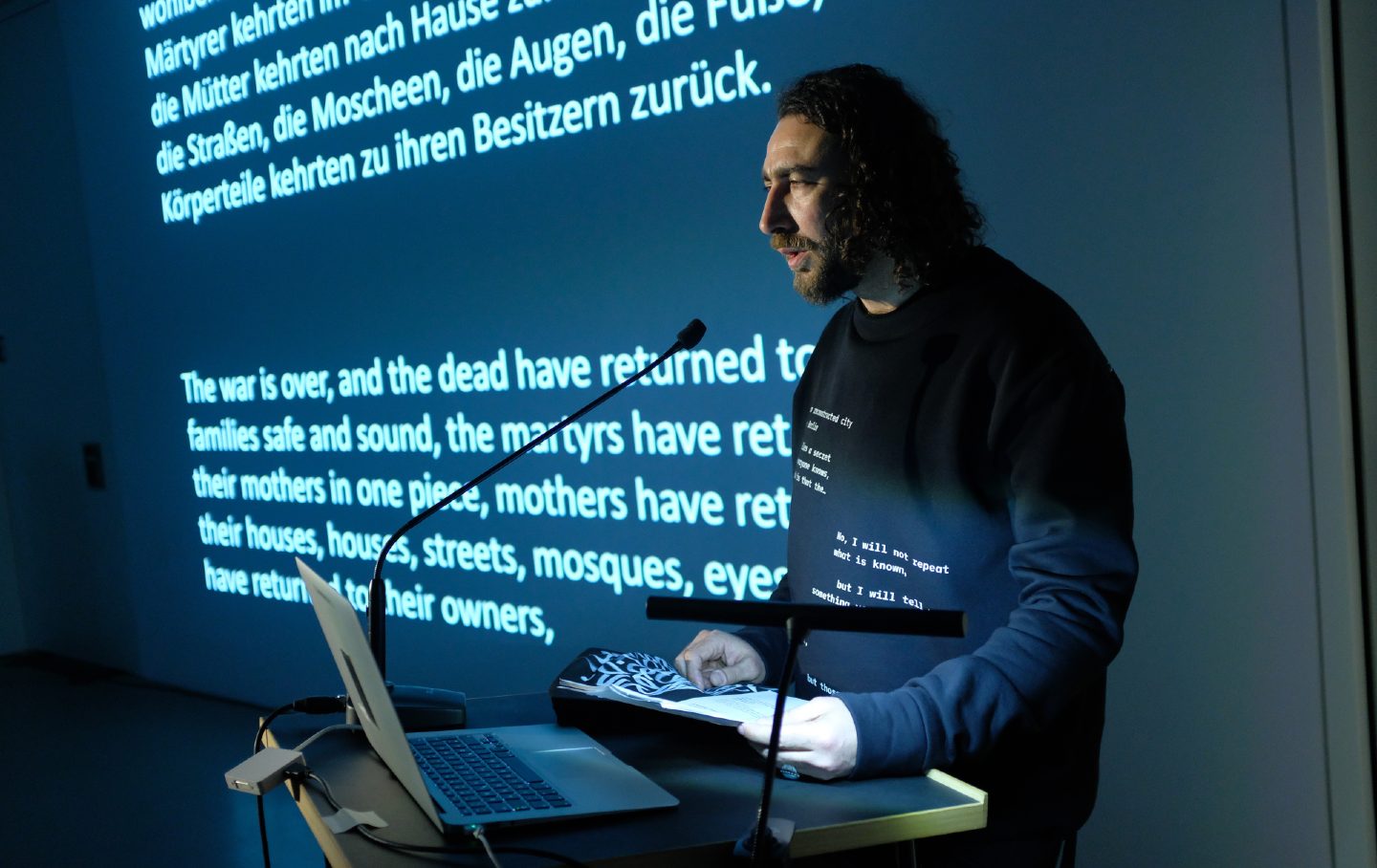The 2024 Olympics Are Already Dealing With Multiple Political Crises
Despite all the bluster about how the Paris 2024 Olympics would be different, they’re looking a lot like the Games of recent years. And we’re only 100 days out.
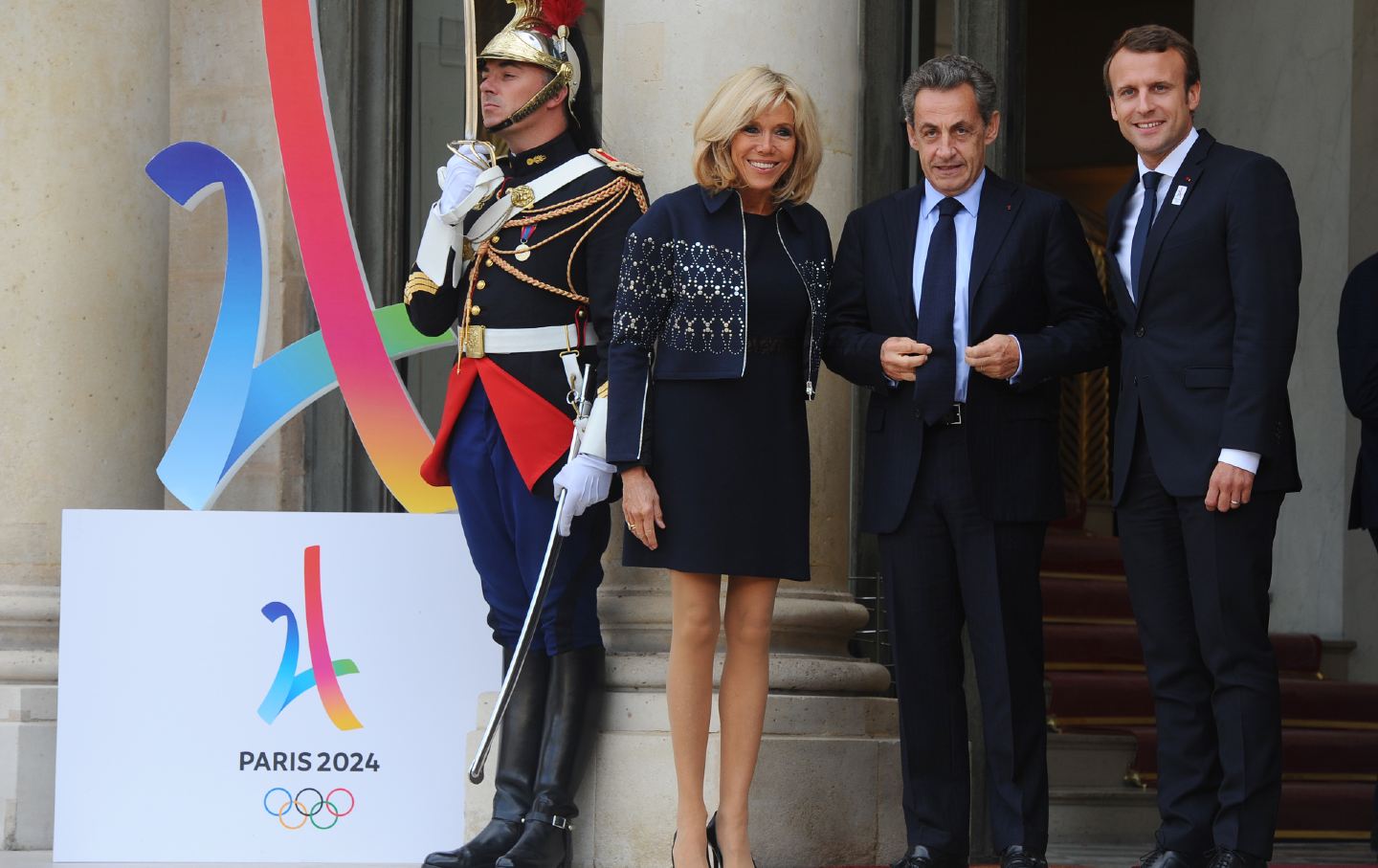
It is officially 100 days until the start of the 2024 Paris Olympics, and France is engulfed in multiple political crises. Even worse for President Emmanuel Macron, the aggrieved are viewing the Olympics as a platform to register their dissent.
The French state is being shaken on several fronts: trade union rage over Macron’s pension program, which resulted in the largest protests in the country this century; attacks on Palestinian rights protesters; and high-profile cases of racist police violence. The grim backdrop for all this is the rise of the fascist right, as embodied by Marine Le Pen, whose National Rally party—until 2018 known as the National Front—is projected to win big in this summer’s European Parliament elections. The reactionary right is surging in France: Le Pen and her protégé Jordan Bardella have become two of three most popular politicians in the country.
All of this turmoil is being supercharged by the complexities of the Olympics itself. The facts on the ground, beneath the blue, white, and red bunting, show that the Olympics are tremendously unpopular in Paris. A recent poll found that 44 percent of Parisians thought the 2024 Olympics were a “bad idea.” It’s a marked downward trend: Two years ago, just 22 percent held negative views of the Paris Olympics. Far from existing on some kind of parallel track of fun and games, the numbers show a collision between the ongoing social turmoil and this bombastic mega-event.
Politically, the Olympics are dredging up dissent across the political spectrum. After the Paris police chief revealed that during the Olympics motorists will have to obtain a QR code to enter specific zones, the far right seized upon the announcement, eager to channel dissatisfaction with the centrist state into their nihilistic ranks. The far-right Les Patriotes party held a protest at the Palais Royal in mid-December, calling the QR codes a “frightening spectacle” that is emblematic of “the totalitarian experience” of the Olympics.
That rise of the right is also being fueled by actions like that of French Sports Minister Amelie Oudea-Castera, who announced a ban on athletes wearing hijabs at the Games, a decision that will further stoke anti-immigrant sentiment. The IOC—not exactly a forward-looking anti-oppression organization, in general—responded that Olympians will in fact be allowed to wear headscarves inside the Athletes’ Village. France is the only European country that bars wearing hijabs in its domestic sports events.
Coinciding with this high-profile anti-Arab and Islamophobic policy is the ongoing genocide in Gaza. While it’s impossible to know how many civilian massacres or organized food shortages will be taking place during the Olympics, anti-Israeli sentiment will be seen—you can almost guarantee it—on the field and off. As for Macron, he and the IOC have made clear that Israel, far from being banned from the Games as an international movement is demanding, will be more than welcome, and that protesting any kind of Israeli presence will not be tolerated. Though Russian Olympians who participate in Paris will be “individual neutral athletes” without their flag or anthem, as a result of the invasion of Ukraine, Macron has rejected the idea that the same should apply to Israel—despite the fact that more than 33,000 Palestinians have been killed and many more have been forcibly displaced by Israeli Defense Forces since the Hamas attacks of October 7.
Meanwhile, Paris continues to use the Olympics to stoke ongoing gentrification. As Cole Stangler notes in Paris Is Not Dead: Surviving Hypergentrification in the City of Light, “The question of who gets to live in a city—and who does not—is eminently political. It always has been.” Ahead of the summer games, French authorities have been busing migrants and unhoused residents to other parts of the country en masse. Antoine de Clerck, campaign director for the group Le Revers de la Médaille (The Other Side of the Medal), told us, “Squats, slums, and encampments are being evicted at an increasing pace, with vulnerable people being sent by bus to cities far from the Olympics and sheltered for three weeks. Sixty percent of them end up back on the streets.” While the French government has denied the connection between this forced displacement and the Paris Games, “the intensification of the process makes it quite obvious to everyone” that the two are connected, he said.
With the Olympics only 100 days away, the political cauldron is already at a full boil. All these issues promise to be amplified by the Olympic Games. Will we see labor strikes? Pro-Palestinian protests? Athletes pledging solidarity? All are increasingly on the table. Because of this, the stealth story of the games may be how the French police and military are preparing to handle any disruptions.
Last year, the French National Assembly passed a law that greenlights the use of AI-powered video surveillance at the Paris Games. The law is slated to sunset in March 2025 after a government review of the program. But Noémie Levain, an attorney with La Quadrature du Net, a Paris-based digital rights group, told us, “Even if there is an evaluation, we know that the government wants to generalize the technology for use into the future.” She added, “The government will be under tremendous pressure from both private companies and police.… We are concerned that the evaluation process will be rigged in favor of these powerful entities.”
In short, the Olympics may well serve as a pretext for intensified surveillance in France moving forward. Earlier this year, Paris 2024 Organizing Committee President Tony Estanguet said of this summer’s Olympics, “We want to showcase the best of France. We have a lot to offer, and we will definitely demonstrate that France has all the strength and the potential to make sure that these Games will be remembered forever.”
Despite the bluster about how the Paris 2024 Olympics would be different, they are looking quite a lot like the Games of recent years, albeit with more resistance coming from all corners. If the Games are “remembered forever,” it may well be because athletes and everyday Parisians decided to stand up and fight back. We’ll be on the ground for The Nation in Paris ready to find out.
Support The Nation this Giving Tuesday
Today is #GivingTuesday, a global day of giving that typically kicks off the year-end fundraising season for organizations that depend on donor support to make ends meet and enable them to do their work—including The Nation.
To help us mobilize our community in this critical moment, an anonymous donor is matching every gift The Nation receives today, dollar-for-dollar, up to $25,000. That means that until midnight tonight, every gift will be doubled, and its impact will go twice as far.
Right now, the free press is facing an uphill battle like we’ve never faced before. The incoming administration considers independent journalists “enemies of the people.” Attacks on free speech and freedom of the press, legal and physical attacks on journalists, and the ever-increasing power and spread of misinformation campaigns all threaten not just our ability to do our work, but our readers’ ability to find news, reporting, and analysis they can trust.
If we hit our goal today, that’s $50,000 in total revenue to shore up our newsroom, power our investigative reporting and deep political analysis, and ensure that we’re ready to serve as a beacon of truth, civil resistance, and progressive power in the weeks and months to come.
From our abolitionist roots to our ongoing dedication to upholding the principles of democracy and freedom, The Nation has been speaking truth to power for 160 years. In the days ahead, our work will matter more than it ever has. To stand up against political authoritarianism, white supremacy, a court system overrun by far-right appointees, and the myriad other threats looming on the horizon, we’ll need communities that are informed, connected, fearless, and empowered with the truth.
This outcome in November is one none of us hoped to see. But for more than a century and a half, The Nation has been preparing to meet it. We’re ready for the fight ahead, and now, we need you to stand with us. Join us by making a donation to The Nation today, while every dollar goes twice as far.
Onward, in gratitude and solidarity,
Katrina vanden Heuvel
Editorial Director and Publisher, The Nation

